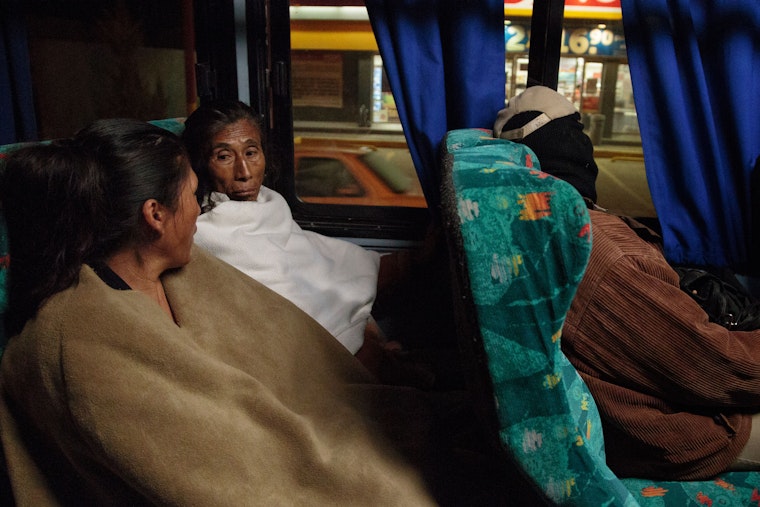Ending Latin America’s Crisis of Avoidable Pain
By Gabriela B. de Luca

In September 2008, the mother of a cervical cancer patient in Cali, Colombia, placed a classified ad in the newspaper El País. In it, her daughter pleaded for help: “Pain is killing me because for several days I have been unable to find injectable morphine in any place. Please, Mr. Secretary of Health, do not make us suffer any more.”
The woman in Cali was not alone. Onerous restrictions on opioid analgesics like morphine, the gold standard medication for severe pain, meant that many pharmacies in Colombia simply avoided stocking it, and patients routinely struggled to obtain the medicine their doctors prescribed.
Although Colombia passed model legislation on palliative care in 2014 and some of the restrictions have been lifted, the barriers to access remain high—because decades of drug policy have prioritized strict control of opioids and failed to provide for their use as essential medicines for people in need of palliative care.
Patients living in some of the poorest countries in the Americas have become collateral damage in the war on drugs, and they’re experiencing severe and avoidable pain as a result. A recent Human Rights Watch Report on palliative care in Guatemala described the “devastating consequences” of these restrictions, including the case of one cancer patient who endured seven-hour bus journeys twice a month to get his medication.
More than one million new cancer patients are diagnosed in Latin America each year, and as populations grow older, the need for pain relief associated with terminal illness and end-of-life care also grows. Yet morphine, a low-cost, generic opioid on the World Health Organization’s list of essential medicines, is either inaccessible or completely unavailable in much of the region.
In 2013, average morphine consumption in Latin America was only 1.85 mg per capita, compared to 45.11 mg per capita as the average morphine consumption in Scandinavian countries. This discrepancy means millions of people are suffering because they cannot access pain relief.
In a report on the negative impact of drug control on public health, the Global Commission on Drug Policy has called this a “global crisis of avoidable pain.” Morphine overregulation is just one example of how drug control impacts people’s ability to access pain relief medicines.
The Colombian human rights organization Dejusticia recently analyzed the law and policy framework in eight Latin American countries—Argentina, Chile, Colombia, Costa Rica, El Salvador, Guatemala, Panama, and Uruguay. Dejusticia’s research reveals many examples of disproportionate regulatory barriers that block access to essential pain relief medications. These include restrictions limiting who can prescribe or handle morphine as well as limitations on the amount or length of prescriptions.
In Argentina, for example, doctors must send a copy of all morphine prescriptions to government authorities within eight days and cannot prescribe it for more than 10 consecutive days. The regulations for pharmacies that stock opioid medications are so onerous that many choose not to stock morphine at all. And because doctors and clinics who specialize in palliative care are often concentrated in major cities, even in countries such as Uruguay, which guarantees the right to palliative care, patients living in rural or impoverished areas are often unable to access medication.
In 2016, after the UN General Assembly Special Session on Drugs acknowledged that drug control has created disproportionate restrictions on access to controlled medicines, governments agreed to adopt drug policies that take human rights and public health into account.
But in order to make these commitments meaningful, governments will need to first identify the factors that impede access to controlled medicines in their countries. That includes not only regulatory barriers from federal to local levels, but also the ways these policies are implemented in everyday medical practice.
As a result, Dejusticia is now working to develop a “diagnosis of access barriers” to palliative care in Colombia. By reaching out to doctors, pharmacists, patients, advocates, and government officials, researchers will figure out where the barriers are found—and how they can be overcome.
Research will fill in the gaps in information, but it’s only the starting point. The relatively strong commitment to national efforts to improve access to controlled medicines that was affirmed during the UN special session was partly the result of unprecedented collaboration between civil society organizations working on palliative care, harm reduction, and drug policy.
That’s why Dejusticia is also working to create dialogue between palliative care advocates and new allies in Colombia. By recognizing the power of alliances, human rights actors can work together to challenge and counter the negative effects of drug control policy.
Dejusticia is a grantee of the Open Society Foundations.
Gabriela B. de Luca is a program officer for law and health with the Open Society Public Health Program.
